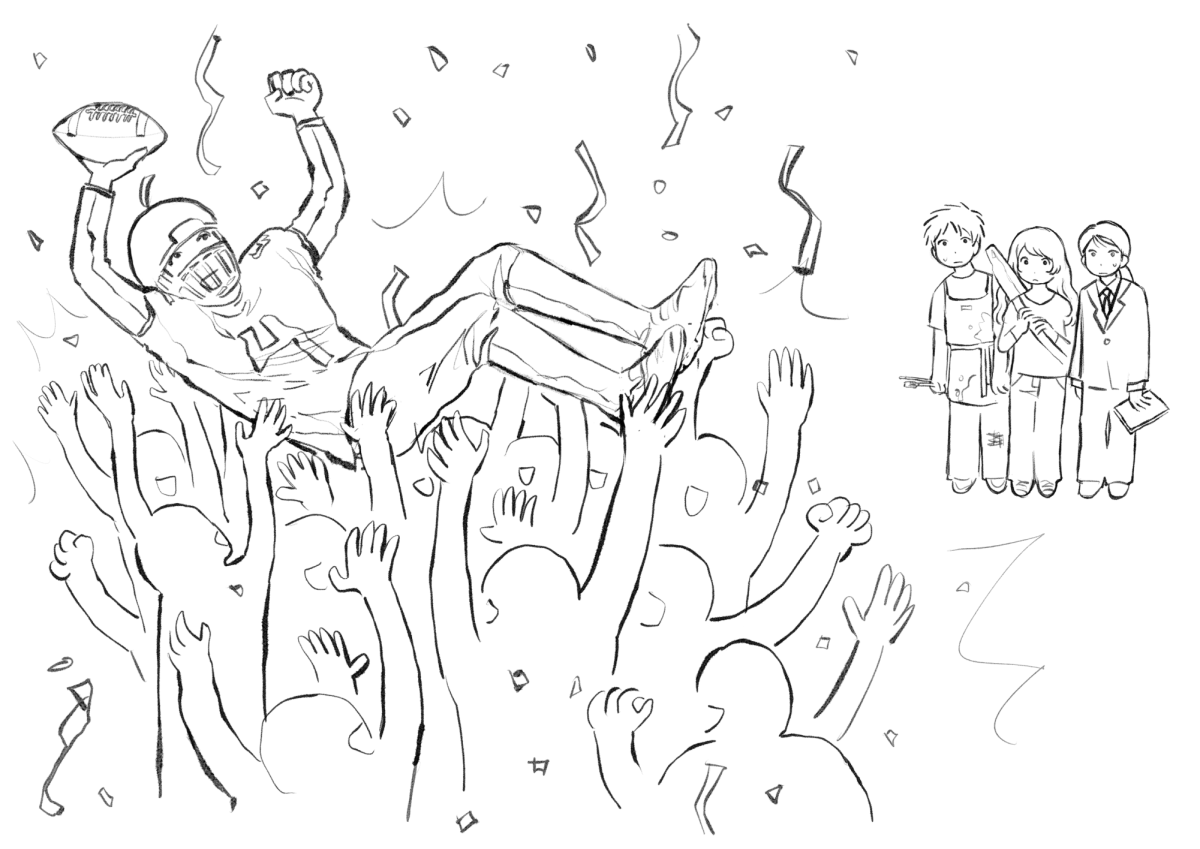Give up
March 29, 2017
Your teacher walks by and drops your test on your desk. You feel your heart plummet into your gut; you know exactly what is coming. Turning it over you stare at the red pen at the top and quickly turn it back over. Try as you might, you know you will never be good at this topic. This entire unit has evaded you, and no matter how much help you get you know that this is just something you will struggle with. The teacher goes over the test, and you spend your time trying to hide your score from the person sitting next to you, terrified that people might know that you don’t.
Many might frown upon this type of thinking, claiming that a fixed mindset is wrong. They push you to believe that you are capable of anything as long as you set your mind to it. While we want to believe that we can do whatever we want and that nothing stops us from achieving our goals but ourselves, it is simply not the truth. Sometimes, there are things that we just cannot overcome. It can be viewed as a sad fact of life; however, we can also view it as a way to better understand ourselves.
No matter how much a friend, a parent, a teacher or an acquaintance tells them, a person who broke their leg will not be able to walk normally. True, this is an extreme, but let’s look a little closer. A person who is dyslexic will always have a hard time reading, no matter how much people tell them they can do it. A person with chronic, clinical depression will always have a hard time overcoming their depressive behavior. A person who writes with their left hand is always going to have a hard time in a world dominated by right-handed people. The important thing to remember is that these people aren’t just “not trying hard enough.” They could be trying their very best to walk, read, feel happy and not get ink or graphite all over their hand, but barriers prevent them from accomplishing these things.
“Grit”, the perseverance and passion for long-term goals, sounds like the key to success and as a result the behavior is shoved down our throats from day one. We are surrounded by peers, teachers, and parents who shout “You can do anything you set your mind to!” but when we hit a rough patch we are chastised “You aren’t trying hard enough”.
Instead of supporting people when they fail, we tell them that it’s their fault for not doing enough, for not doing better, for not being perfect. We tell our physically ill that they just need to keep their chin up and keep going no matter how much it hurts and how much of a cost it will have on their health. We tell our mentally ill that they aren’t trying hard enough, that they will never amount to anything despite the fact that they are trying their best to get through the day. We tell anyone who has some barrier preventing them from succeeding by our standards, that they aren’t good enough.
In an ideal world, anyone would be able to do anything. But we live in reality, in a reality where “grit” and a “constant growth” line of thought hurts us more than it helps us. Gregory E. Miller and Carsten Wrosch revealed in their Association for Psychological Science article “You’ve Gotta Know When to Fold ‘Em” that those “who can disengage from unattainable goals enjoy better well-being[…] and experience fewer symptoms of everyday illness”. Essentially, those who know when they have reached their limit will live a happier, more complete life by relieving the stress and anxiety that comes with trying to achieve an unattainable perfection: society defined success.
In a study conducted by Jonathan Gratch from the USC Institute for Creative Technologies, Lin Cheng from Northwestern University, and Stacy Marsella also from Northwestern it was found that people who defined themselves as “gritty” would often get stuck on difficult questions preventing them from reaching the easier questions. So while grit focused, growth mindset people would appear to be more adaptive and capable of success, they are less likely to know when to fold their hand and move on to the next round.
On the other hand, those with a fixed mindset are more knowledgeable of their abilities. A man with a broken leg knows he can’t run a marathon and as a result can focus on things that will make him happy. A dyslexic child who knows that they struggle with reading, can now focus on other activities like sports and arts. A depressed individual who knows that they have a harder time dealing with “normal life” can stop chasing after it and develop a way of life that makes them feel more complete. A student who knows they are bad at math, english, science, or social studies can focus on the things they enjoy and eventually make a career out of them. Knowing your limits is key in life, sometimes giving up on what makes you stressed, frustrated, and unhappy will truly let you grow.







